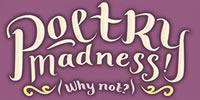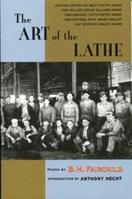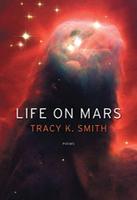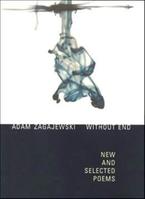 My name is Bob and I'm a... bracketer. Now bracketology, as fans of NCAA college basketball's March Madness know, is an aggressive but relatively harmless obsession. It even manages to infiltrate the world of literature, especially in the annual Tournament of Books. And don't think for a moment that poetry gets off the hook. Poetic March Madness can range from the ridiculous, as in CBS Sports' attempt at a haiku preview of this year's first round:
My name is Bob and I'm a... bracketer. Now bracketology, as fans of NCAA college basketball's March Madness know, is an aggressive but relatively harmless obsession. It even manages to infiltrate the world of literature, especially in the annual Tournament of Books. And don't think for a moment that poetry gets off the hook. Poetic March Madness can range from the ridiculous, as in CBS Sports' attempt at a haiku preview of this year's first round:
Louisville wins big
Thursday's first after dinner
A few blowouts: fine.  to the sublime, like B.H. Fairchild's poem "Old Men Playing Basketball" (The Art of the Lathe, Alice James Books), which begins:
to the sublime, like B.H. Fairchild's poem "Old Men Playing Basketball" (The Art of the Lathe, Alice James Books), which begins:
The heavy bodies lunge, the broken language
of fake and drive, glamorous jump shot
slowed to a stutter. Their gestures, in love
again with the pure geometry of curves
Then there's the Poetry Madness bracketology happening right now at Powell's Books, Portland, Ore. To celebrate National Poetry Month, Powells.com is hosting a six-round competition to determine 'The Best Poet of All Time.' Voting started April 5 and continues through April 29, with the winning bard to be announced April 30. The bracket began with 64 poets, divided into four categories: Living, Deceased, In Translation and Pacific Northwest. Each poet competes against one opponent per round, and voters control who moves on by selecting their favorite poets in the matchups.
The poetic bracketology that affects me most, however, occurs between the pages of all those volumes jammed into my poetry bookcase. We're talking real brackets here: [ ], and one reader's entire adult life spent extracting nuggets from poems that already functioned well without my scribbling interference. If a mea culpa regarding all this literary panning for gold is in order, then consider it done.
I just went downstairs, pulled a few collections from my shelves, almost but not entirely at random, and brought them back to my office. It's not the first time. This is something I do: an occasional poetic bracketology session. No point in bracketing if you don't return to the scene of the crime once in a while.
Idly flipping through pages, I realize that even if I didn't already know these books were mine, I'd recognize them because at least one out of every five pages has lines of poetry set off in hand-carved brackets. Purists and serious book collectors would be appalled at the way I deface my books, not to mention the poetry itself. But I'm a collector in my own way. I collect the insides of books as well as the insides of poems. Bracketing in a collection I love creates a kind of commonplace book, a way to remember what I want to remember, what I need to remember. Like these lines from Tracy K. Smith's "My God, It's Full of Stars" (Life on Mars, Graywolf):
Bracketing in a collection I love creates a kind of commonplace book, a way to remember what I want to remember, what I need to remember. Like these lines from Tracy K. Smith's "My God, It's Full of Stars" (Life on Mars, Graywolf):
Sometimes, what I see is a library in a rural community.
All the tall shelves in the big open room. And the pencils
In a cup at Circulation, gnawed on by the entire population.
Or this from David Budbill's "After a Walk on a Gray, Drizzling, Cold Spring Morning: The Thirtieth of April" (Moment to Moment, Copper Canyon):
Each in our own place, each in our own time,
each calling distinctly, all calling together.
Sublime and earthy. This chorus of voices.
Or this from W.G. Sebald's "Giulietta's Birthday" (Across the Land and Water: Selected Poems, 1964-2001, Penguin):
One leaves behind one's portrait
Without intent. Even in a week as brutal and inexplicable as the one we've just experienced, I'm not looking to bracketology for simple solace. The job of poetry isn't to make me feel better. If it offers a little hard-won perspective, however, I don't complain. Consider Adam Zagajewski's "Try to Praise the Mutilated World" (Without End: New & Selected Poems, FSG):
Even in a week as brutal and inexplicable as the one we've just experienced, I'm not looking to bracketology for simple solace. The job of poetry isn't to make me feel better. If it offers a little hard-won perspective, however, I don't complain. Consider Adam Zagajewski's "Try to Praise the Mutilated World" (Without End: New & Selected Poems, FSG):
Remember June's long days,
and wild strawberries, drops of rosé wine.
The nettles that methodically overgrow
the abandoned homesteads of exiles.
We've traveled a considerable distance in this column, from NCAA basketball to mutilated worlds, but that's what I love about poetry, how it finds its own way. Each poem is a loner, an outcast. Poems are even born alone, though the lucky ones may find temporary shelter in literary journals or, eventually, in books where they huddle with their "collected" or "new and selected" cousins. As a reader, poetry also lives for me between the brackets. --Robert Gray, contributing editor (column archives available at Fresh Eyes Now).

